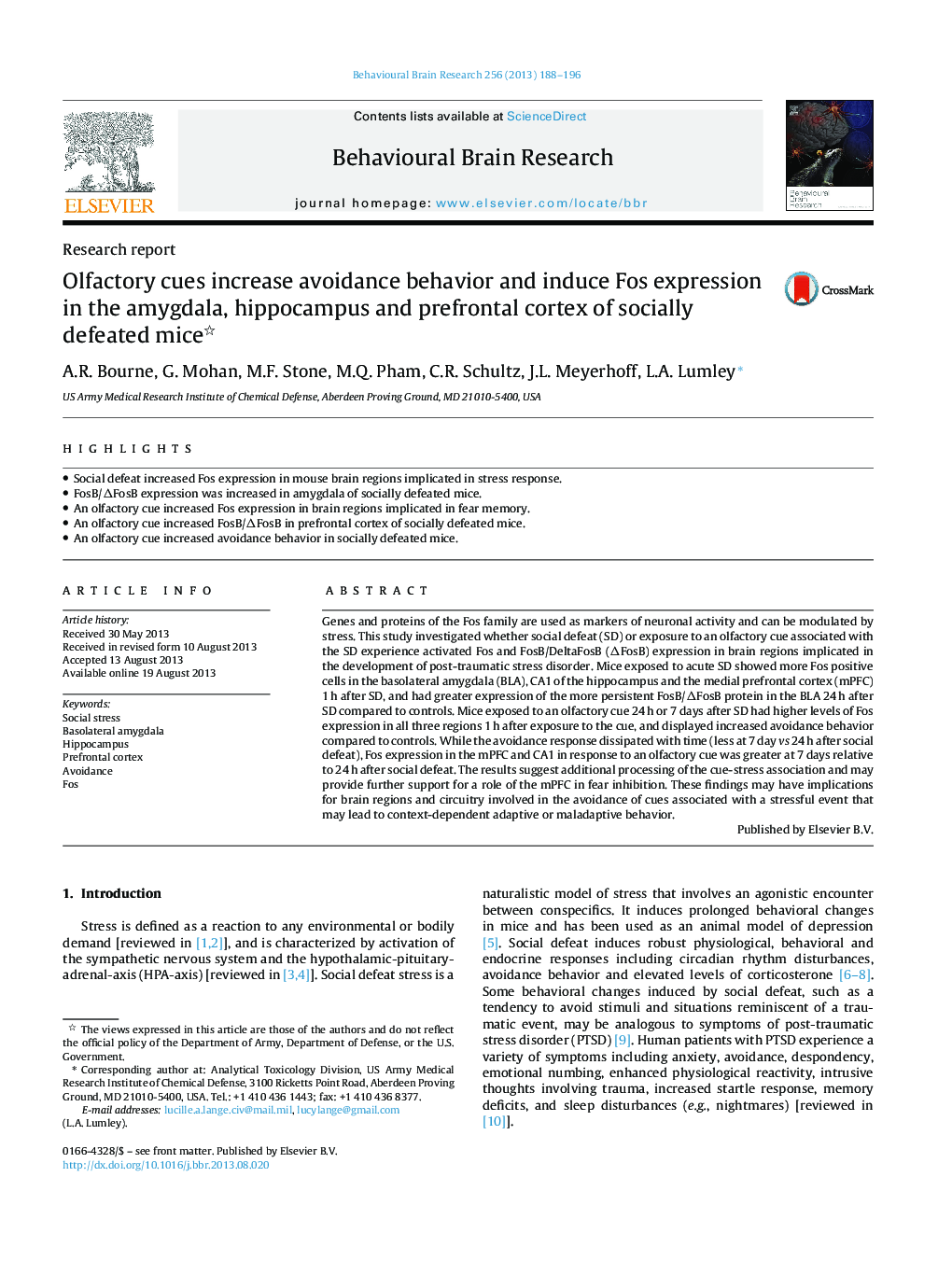| کد مقاله | کد نشریه | سال انتشار | مقاله انگلیسی | نسخه تمام متن |
|---|---|---|---|---|
| 6258773 | 1612976 | 2013 | 9 صفحه PDF | دانلود رایگان |
- Social defeat increased Fos expression in mouse brain regions implicated in stress response.
- FosB/ÎFosB expression was increased in amygdala of socially defeated mice.
- An olfactory cue increased Fos expression in brain regions implicated in fear memory.
- An olfactory cue increased FosB/ÎFosB in prefrontal cortex of socially defeated mice.
- An olfactory cue increased avoidance behavior in socially defeated mice.
Genes and proteins of the Fos family are used as markers of neuronal activity and can be modulated by stress. This study investigated whether social defeat (SD) or exposure to an olfactory cue associated with the SD experience activated Fos and FosB/DeltaFosB (ÎFosB) expression in brain regions implicated in the development of post-traumatic stress disorder. Mice exposed to acute SD showed more Fos positive cells in the basolateral amygdala (BLA), CA1 of the hippocampus and the medial prefrontal cortex (mPFC) 1Â h after SD, and had greater expression of the more persistent FosB/ÎFosB protein in the BLA 24Â h after SD compared to controls. Mice exposed to an olfactory cue 24Â h or 7 days after SD had higher levels of Fos expression in all three regions 1Â h after exposure to the cue, and displayed increased avoidance behavior compared to controls. While the avoidance response dissipated with time (less at 7 day vs 24Â h after social defeat), Fos expression in the mPFC and CA1 in response to an olfactory cue was greater at 7 days relative to 24Â h after social defeat. The results suggest additional processing of the cue-stress association and may provide further support for a role of the mPFC in fear inhibition. These findings may have implications for brain regions and circuitry involved in the avoidance of cues associated with a stressful event that may lead to context-dependent adaptive or maladaptive behavior.
Journal: Behavioural Brain Research - Volume 256, 1 November 2013, Pages 188-196
